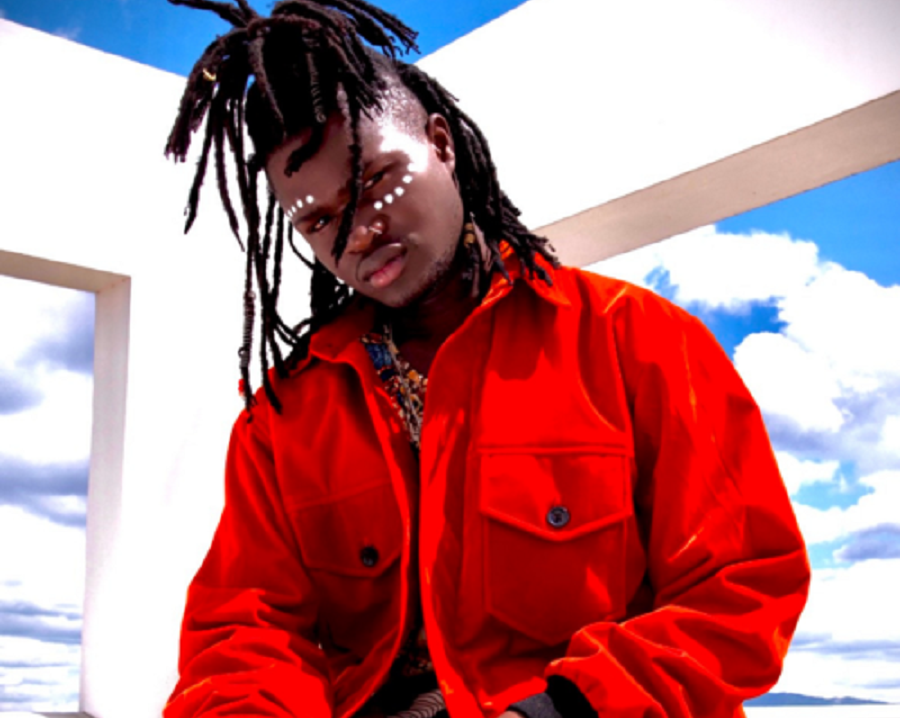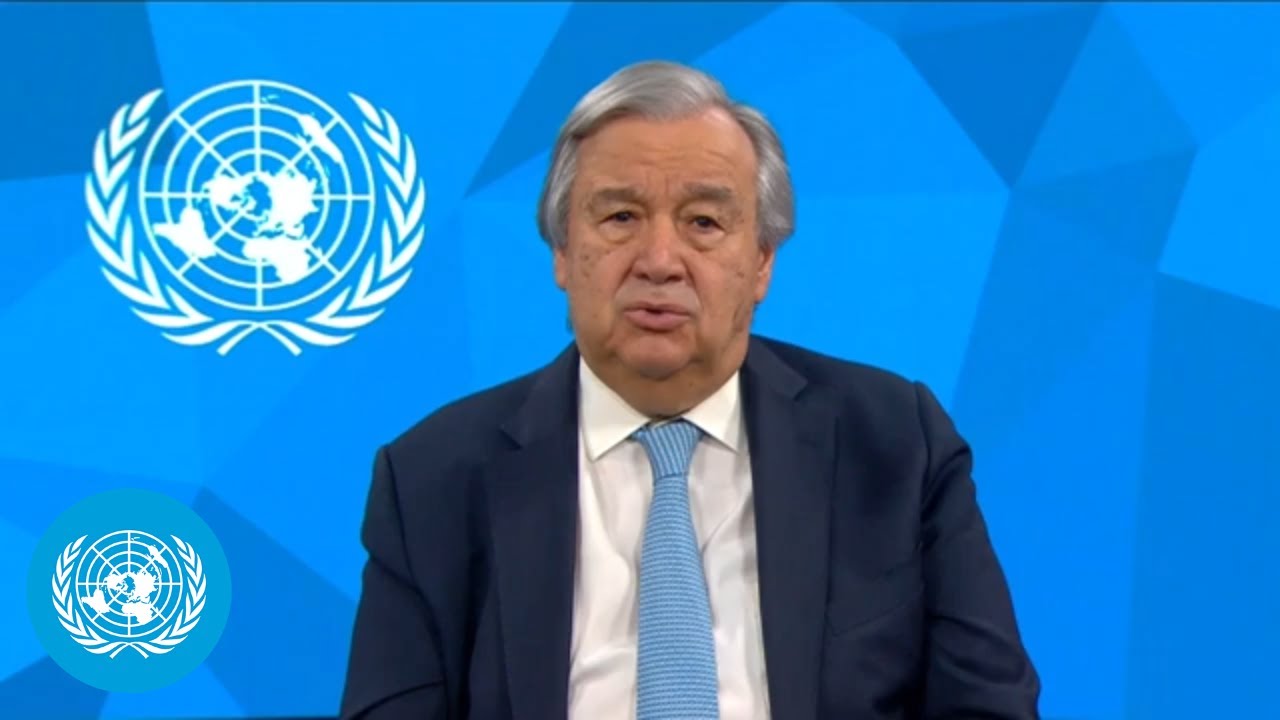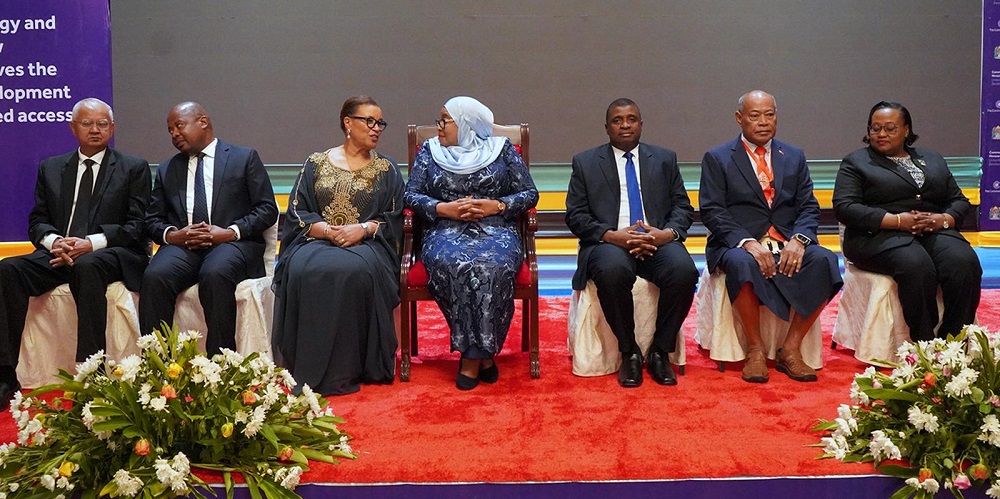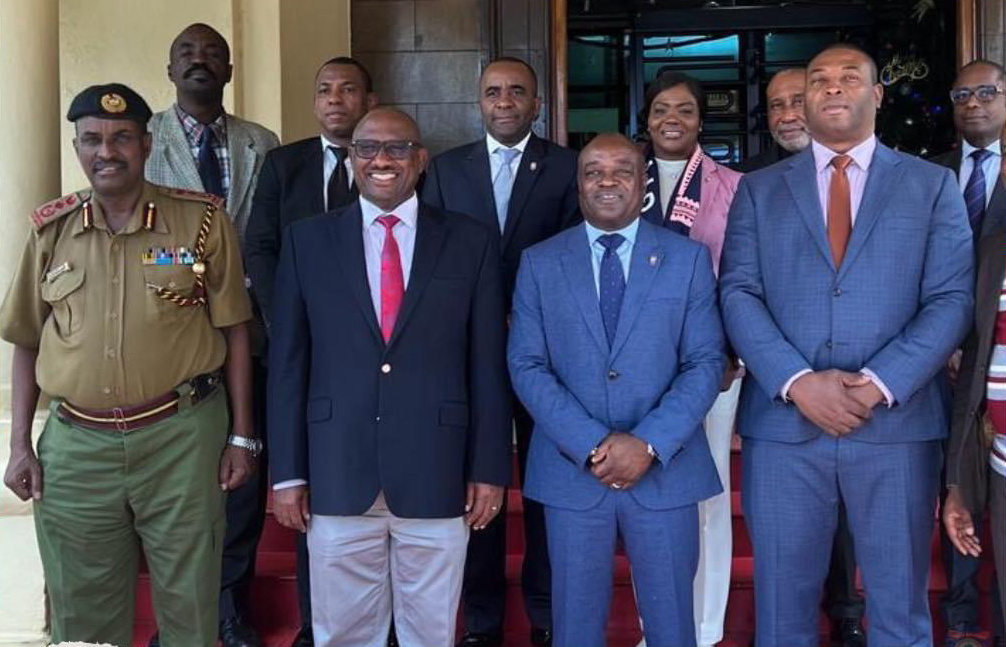By Dana Malcolm
Staff Writer
#Africa, February 2, 2023 – One Kenyan designer began a sewing business out of the slums where he was born; now he dresses some of the Caribbean and Africa’s most famous faces.
Born the oldest son of a single mother and from Kibera Nairobi, David Avido Ochieng did not have an easy start. In Kibera, the largest urban slum in East Africa opportunities for international success are hard to come by and yet Avido can now say he has dressed the likes of former Kenyan President Uhuru Kenyatta, Beyoncé, Chronixx, Romain Virgo, Tarrus Riley, Chris Martin, Ty Dolla Sign, Koffee and many more.
Virgo, Tarrus Riley, Chris Martin, Ty Dolla Sign, Koffee and many more.
As explained on his website, David dropped out of school to work and support his family quite young. In just first form he was working on a construction site but he knew he wanted more from life. After quitting his job he danced and saved what he could and tried his best to complete his education.
He told Vogue magazine: “When I started dancing I used to save money in order to go back to high school, with the little that I could get from dancing and my mom’s money from doing work as a house help, we were able to raise 15,000 shillings and with that, I joined an adult school and skipped forms two, three and four.”
David picked up a sewing machine to make costumes and realized his talent. By 2015, his brand LookslikeAvido was born. He completed a fashion & design diploma at Buruburu Institute of Fine Arts and began to sew incredible pieces right at home in Kibera. Even as his brand is globally recognized, Kibera is where his workshop remains; David says, his homeland is his great inspiration.
“There is no barrier if you believe in your talent and take the next step. I want to encourage and create beauty, where people don’t expect.”
Talented and thoughtful Avido is well aware of the stereotypes surrounding him, his home and the black community globally.
“We know about injustice and violence, prejudice, racial and social discrimination – we experience it within Kenya and we experience it globally, as people look at us as the poor, the uneducated, the needy,” he said.
Featured in Vogue, CNN and other international publications, Avido remains connected to his origins in a tangible way and as his success grows his roots just go deeper. Twenty per cent of all sales of his jackets and other clothing items go directly back to Kibera; his website explains that all the tailoring, product photoshoots and collaborations ‘is all done here in Kibra.’
There is no fabric waste from his garments, instead, scraps are repurposed into masks and shopping bags for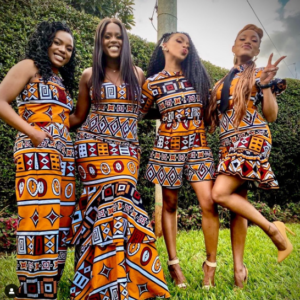 residents, all his tailors are local residents, a portion of profits are used to pay school fees and Avido and his team put in extra time to make school uniforms as well.
residents, all his tailors are local residents, a portion of profits are used to pay school fees and Avido and his team put in extra time to make school uniforms as well.
On his website, is a photo of him sitting around a sewing machine, his worktable resting on hard-packed earth with presumably a group of family and friends surrounding him, a source of pride. The introspective photograph could have been taken in Nairobi, Trinidad or Barbados, so nostalgic is the picture, the bench and the story of community success that it represents.
In a video posted to his YouTube, David sits at his new work desk, and beside him hangs a rack of clothes in the cramped space that serves as his kitchen as well.
“I’m the firstborn of Kibera,” He explains, “Every kid in Kibera is looking up to me— my main dream is to open up a place where I can inspire people to work.”
David has a dozen employees and is listed in Beyonce’s directory of black businesses; with an uncommon wisdom, the designer knows that his successes so far are not parking spaces but rather stepping stones as he faces his future announcing that the journey, for him, continues.

 Caribbean News1 week ago
Caribbean News1 week ago
 Caribbean News7 days ago
Caribbean News7 days ago
 Caribbean News1 week ago
Caribbean News1 week ago
 Caribbean News1 week ago
Caribbean News1 week ago
 Bahamas News7 days ago
Bahamas News7 days ago
 News7 days ago
News7 days ago
 Bahamas News1 week ago
Bahamas News1 week ago
 News7 days ago
News7 days ago
